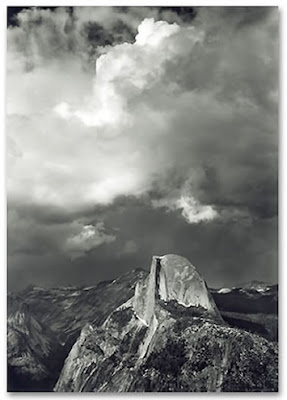I joined Facebook yesterday, and I am already having regrets. It is, so far, a place of almost unmitigated optimism and perkiness. And why not? Within a matter of hours I had 45 "friends," many of them from my high school years, and a membership in my high school graduating class's group. It's a lot of fun to see those faces and engage in a bit of conversation. A gigantic online reunion, at one's own pace.
But this morning I see that a woman I know ~ and like very much ~ has commented that "a week-end away at a friend's wedding always makes any couple overjoyed."
Well, no. It doesn't. We went to our niece's wedding a month after Chicago Son died. I'm glad we went; our presence meant a great deal to my brother, and the evening gave our other two children a break in the relentlessness of the first month's oppressive grief. (They stayed at the reception until the bitter end and went back to their uncle's house for the rest of the night. The Quiet Husband and I were long gone.) But for me? Close to unendurable. And now we are at an age where the weddings of children promise to be a regular feature in our lives. Our niece's was the third in as many months.
There is, I suppose, virtually no public event at which some of the attendees are not burdened by the demand to conceal pain, the expression of which at that time would at best be inappropriate, and at worst completely ruin the day for everyone else. Church is close to one of those. Last year I preached a sermon in my home church and, as I looked out at the congregation, saw Musical Friend, whose husband had died three weeks earlier; another friend who had just buried the father for whom she had cared tenderly for years; a couple whose 22-year-old son had suddenly died, and a man whose wife of 70 years was also recently gone from his life. Musical Friend tells me that she weeps through church every Sunday, but I know that she doesn't wail and keen the way she wants to. I seldom go, because my experience is similar.
When I read that woman's quote on Facebook, I was reminded of a day in church a few years ago ~ the occasion of her third son's baptism. After the service, she said happily to a group of us that she so looked forward to the years ahead, and to her three boys growing up in the church: there would be confirmation, and youth group, and so many other wonderful things in which they would participate.
My own children having all opted out of church by middle school, I thought quietly to myself that her outspoken pleasure reflected the experience of a parent who had not yet encountered the adolescence of her children. I, too, had at one time imagined the delight that I would take in our family's church experience as our children grew up. Didn't happen.
And now, there she is on Facebook, bubbling over with joy at the wedding of friends. As she should, of course.
Maybe I am just jealous, since I cannot envision for myself what she takes for granted. Maybe I am just resentful at her casual assumption that "everyone" shares her outlook, since I imagine it to arise from an experience of life that has, so far, been uninterrupted by sudden tragedy. And maybe I am just wrong, and her gifts for overcoming sorrow are far greater than mine.
I don't know. But I do see that the world of Facebook presents the same challenges as the rest of the world.














